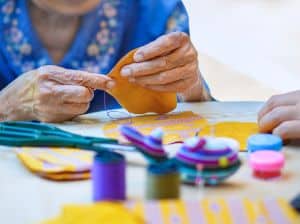
Many of us take safety in our own homes for granted, yet environmental hazards can pose significant health risks for seniors.
As we age, our immune systems can become more vulnerable, making it crucial to recognize and address any dangers lurking in our living environments.
This guide seeks to empower seniors by providing essential questions and insights to help them tackle potential legal challenges related to health hazards in their homes.
What are the Common Health Hazards Seniors Face?
Environmental hazards are often invisible but can wreak havoc on health, particularly for older adults. Mold, asbestos, and lead are among the most common culprits, each presenting unique dangers.
Mold can cause respiratory problems and allergic reactions, while asbestos exposure is linked to serious lung diseases, including cancer.
Lead, typically found in old paint, can cause cognitive difficulties, which is especially concerning for seniors already facing age-related mental decline.
Other toxic substances like radon and carbon monoxide also pose significant risks, and awareness is the first step in addressing them.
Recognizing Environmental Hazards in Your Home
Identifying environmental hazards early can prevent serious health issues. Seniors should be vigilant about changes in their homes that might indicate the presence of these dangers.
Visually, look for discoloration or water stains, which may indicate mold growth. An unusual, musty odor can also signal mold or mildew.
Be alert for persistent coughing, itchy eyes, or headaches, as these health indicators might suggest hidden environmental risks. Regularly check older homes for peeling paint that could contain lead, and ensure that carbon monoxide detectors are installed and functional.
Understanding Legal Rights Against Environmental Hazards
Seniors have specific legal protections designed to safeguard their health and well-being.
The federal government and state laws provide a framework of rights to ensure safe living conditions. There are also ongoing lawsuits with PFAs. If you’ve unfortunately had to deal with that, here’s how to file claims regarding an AFFF lawsuit.
For example, the Environmental Protection Agency (EPA) regulates the presence of hazardous materials like asbestos and lead in residential properties.
Seniors should familiarize themselves with these regulations to advocate for their health rights. Knowledge of these laws empowers individuals to demand necessary remedial actions and hold relevant parties accountable.
Reporting Environmental Hazards
Know how to report environmental hazards. If seniors suspect their living environment is compromised, they should contact local authorities or housing agencies.
Report to landlords, too. They are responsible for ensuring safe living conditions. Proper documentation of the hazards, such as photographs and detailed descriptions, can strengthen the case for necessary intervention.
Understanding the local processes for addressing these concerns can expedite solutions, reducing seniors’ exposure to potentially harmful conditions.
Responsibilities of Landlords and Property Owners
Landlords and property owners have a legal obligation to maintain safe living environments. This duty of care requires them to promptly address hazards like mold, lead, and asbestos.
Seniors should be aware of these responsibilities, as landlords can be held accountable if they neglect their duties.
Familiarize yourself with lease agreements and local regulations to understand what is required of property owners. This knowledge can empower seniors to demand necessary repairs or improvements, ensuring their homes remain safe havens rather than sources of health risks.
What to Do if Health is Affected by Environmental Hazards
If seniors suspect environmental hazards compromise their health, immediate action is necessary. Seeking medical attention should be the first step, allowing healthcare professionals to assess exposure-related symptoms.
Detailed records of health changes and potential environmental triggers can aid in diagnosis and treatment.
This documentation is also vital if legal action becomes necessary, providing clear evidence of the impact on health. Prioritizing health addresses immediate concerns and strengthens any future legal case.
When to Seek Legal Counsel for Environmental Hazards
Knowing your legal rights in these situations is important. Determining when legal action is appropriate can be challenging, but certain indicators can guide this decision.
If landlords or property owners do not address reported hazards, or if health impacts are severe, consulting a lawyer might be necessary. Legal counsel can guide you on the next steps, whether it’s pursuing remediation or seeking compensation.
Act promptly, as delays can exacerbate health issues and complicate legal proceedings. Knowing when and how to seek legal help can be a pivotal step in resolving these challenges.
The Bottom Line
Addressing environmental hazards is essential for ensuring the health and safety of seniors. These hazards, including mold, asbestos, lead, radon, and carbon monoxide, pose significant risks and demand proactive attention.
Seniors must recognize potential threats and advocate for their rights to a safe living environment. Understanding their legal protections and the responsibilities of landlords and property owners can empower them to take necessary actions.
When health is affected, documenting symptoms and seeking professional advice is crucial. Legal counsel may be necessary when remediation is not forthcoming. By combining awareness, advocacy, and legal strategies, seniors can better safeguard their health against environmental hazards.








